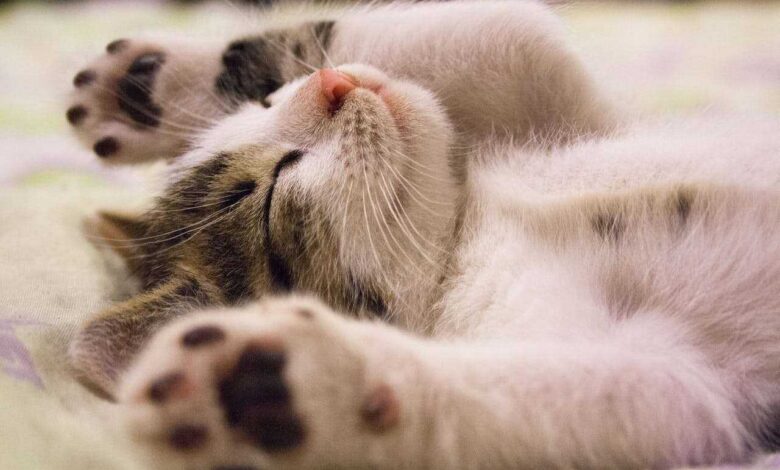
Cat sneezing is a common occurrence that can be triggered by various factors, ranging from benign irritants to underlying health issues. While occasional sneezing is normal for cats and serves as a way to expel foreign particles from their nasal passages, persistent or frequent sneezing may warrant further investigation. In this comprehensive guide, we’ll delve into the causes, symptoms, and treatment options for cat sneezing to help you better understand and address this common feline issue.
Causes of Cat Sneezing
Respiratory Infections
- Respiratory infections, such as feline herpesvirus or calicivirus, are common causes of sneezing in cats. These viral infections can lead to inflammation of the nasal passages and upper respiratory tract, resulting in sneezing, nasal discharge, and other symptoms.
Allergies
- Cats can develop allergies to various environmental allergens, including pollen, dust, mold, or certain foods. Allergic reactions may manifest as sneezing, nasal congestion, itching, or skin irritation.
Foreign Objects
- Foreign objects lodged in the nasal passages can cause irritation and trigger sneezing in cats. Common culprits include grass, dust particles, or small toys that cats may inhale or ingest while exploring their environment.
Dental Issues
- Dental problems such as tooth decay, gum disease, or oral infections can lead to sneezing in cats. Inflammation or infection in the oral cavity may cause nasal discharge or a foul odor, prompting sneezing as the body attempts to expel irritants.
Symptoms of Cat Sneezing
Frequent Sneezing
- Cats with sneezing issues may exhibit frequent or persistent sneezing episodes, often accompanied by nasal discharge or other respiratory symptoms.
Nasal Discharge
- Nasal discharge, ranging from clear and watery to thick and colored, is a common symptom of respiratory infections or allergies in cats.
Watery Eyes
- Sneezing in cats may be accompanied by watery or teary eyes, indicating irritation or inflammation of the ocular tissues.
Lethargy and Loss of Appetite
- Cats experiencing discomfort or respiratory distress due to sneezing may appear lethargic and exhibit a reduced appetite or interest in food.
Treatment Options for Cat Sneezing
Veterinary Examination
- If your cat is experiencing persistent or severe sneezing, it’s essential to consult with a veterinarian for a thorough examination. A veterinarian can assess your cat’s overall health, perform diagnostic tests if necessary, and recommend appropriate treatment options.
Medications
- Depending on the underlying cause of the sneezing, your veterinarian may prescribe medications such as antibiotics, antiviral drugs, or antihistamines to alleviate symptoms and address the underlying condition.
Environmental Management
- Minimizing your cat’s exposure to potential allergens or irritants, such as dust, pollen, or cigarette smoke, can help reduce sneezing episodes. Keep your cat’s living area clean, well-ventilated, and free of potential respiratory triggers.
Supportive Care
- Providing supportive care and comfort measures, such as humidifiers or steam therapy, can help alleviate nasal congestion and respiratory discomfort in cats with sneezing issues.
Prevention Tips for Cat Sneezing
Regular Veterinary Checkups
- Schedule regular veterinary checkups to monitor your cat’s health and address any potential health concerns early on. Preventive care, including vaccinations and dental checkups, can help reduce the risk of respiratory infections and other health issues.
Environmental Enrichment
- Provide environmental enrichment and mental stimulation for your cat to promote overall well-being and reduce stress. Engage in interactive play sessions, provide scratching posts, and offer opportunities for exploration and exercise.
Balanced Diet
- Feed your cat a balanced and nutritious diet to support their immune system and overall health. Consult with your veterinarian to determine the appropriate diet for your cat’s age, breed, and specific nutritional needs.
Providing Relief for Your Cat’s Sneezing
Cat sneezing can be a distressing issue for both cats and their owners, but with proper care and attention, it can often be managed effectively. By understanding the causes, symptoms, and treatment options for cat sneezing, you can provide relief for your furry companion and help them enjoy a happy, healthy life.
FAQs:
Q1: Why is my cat sneezing?
- A1: Cat sneezing can be caused by various factors, including viral or bacterial infections, allergies, foreign objects in the nasal passages, dental issues, or environmental irritants like dust or smoke.
Q2: When should I be concerned about my cat’s sneezing?
- A2: While occasional sneezing is normal for cats, persistent or frequent sneezing, especially accompanied by other symptoms such as nasal discharge, lethargy, or loss of appetite, may indicate an underlying health issue that requires veterinary attention.
Q3: Can allergies cause my cat to sneeze?
- A3: Yes, cats can develop allergies to various environmental allergens such as pollen, dust, mold, or certain foods, which may manifest as sneezing, nasal discharge, or other respiratory symptoms.
Q4: How can I help relieve my cat’s sneezing?
- A4: Providing a clean and dust-free environment, using air purifiers, and keeping your cat’s living area well-ventilated can help reduce exposure to allergens and irritants. Additionally, regular grooming to remove dust and debris from your cat’s fur may alleviate sneezing.
Q5: Should I take my cat to the vet if they’re sneezing?
- A5: If your cat’s sneezing is persistent, accompanied by other concerning symptoms, or if you notice any changes in their behavior or appetite, it’s advisable to consult with a veterinarian. A thorough examination can help determine the underlying cause of the sneezing and appropriate treatment options.
If your cat is experiencing persistent or severe sneezing, consult with a veterinarian for personalized advice and treatment recommendations. With the right approach, you can help your cat overcome sneezing issues and thrive.









The post on creating a balanced diet for senior dogs was incredible. My 12-year-old shepherd mix seems so much more energetic after I adjusted his meals based on your guidelines. Thank you for putting together such thorough, easy-to-follow information!